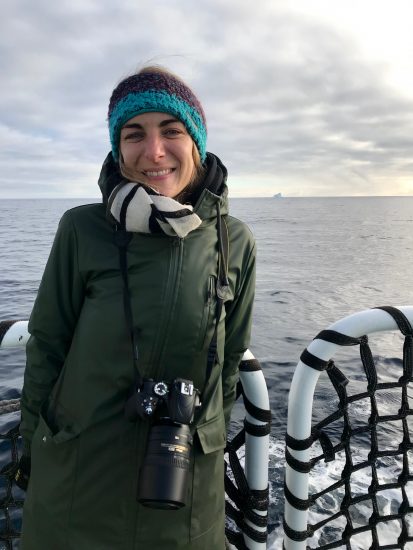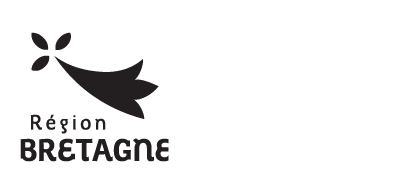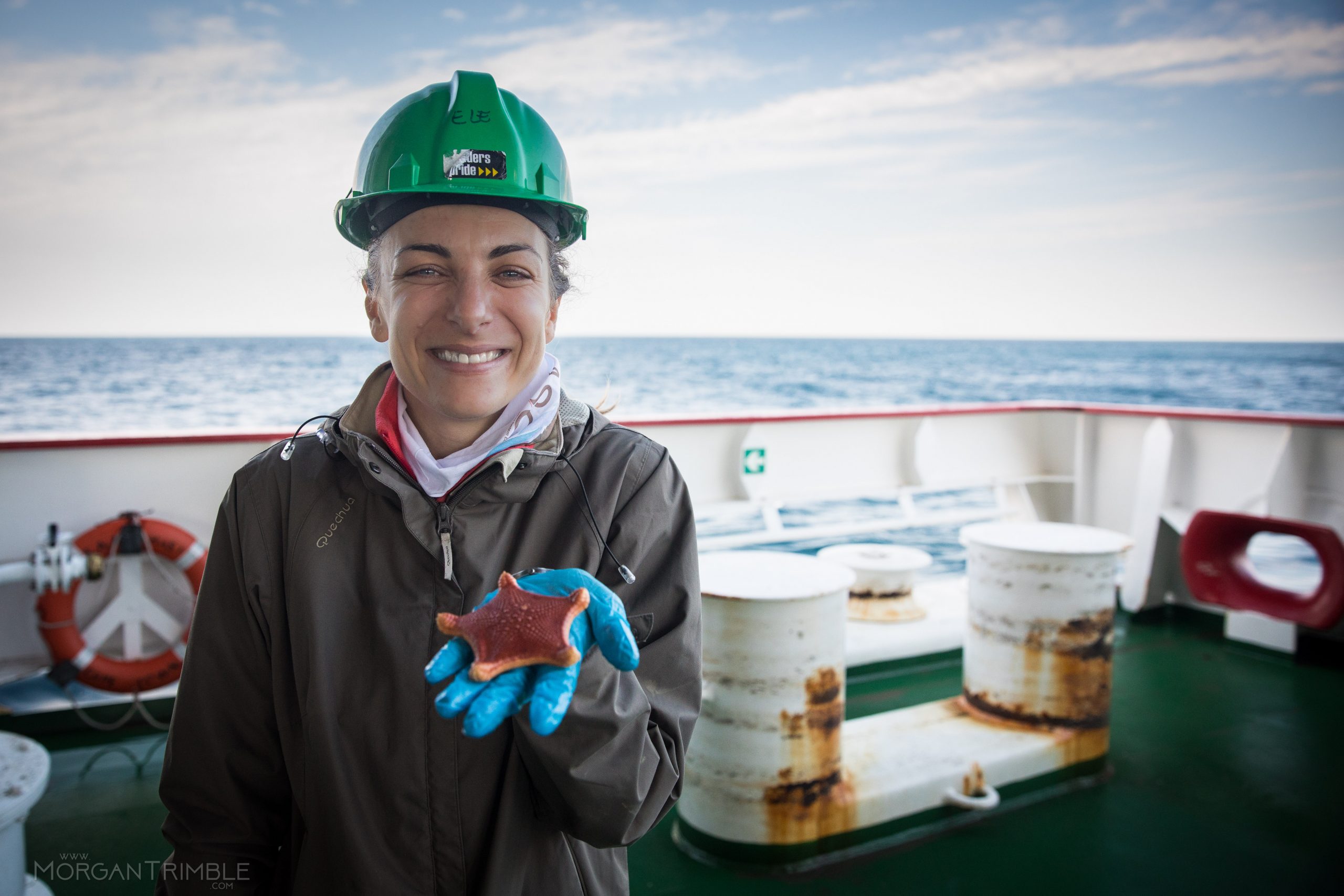Eleonora Puccinelli is an ISBlue post-doctoral researcher at the Université de Bretagne Occidentale (UBO), Institut Universitaire Européen de la Mer (IUEM), Laboratoire des Sciences de l’Environnement Marin (LEMAR) since October 2019. She has accepted to tell us more about her work, her experience at LEMAR, and her stay in Brittany.
BIENVENÜE team: Hi Eleonora. Tell us more about your research interests.
Eleonora: I am a marine trophic ecologist who is interested in food web dynamics of intertidal and benthic deep-sea communities. In my current project, I focus on omega-3 fatty acids production in the ocean. Omega-3 are molecules essential for human health, and their major producer in the ocean is phytoplankton – the “plants of the sea”. I am looking at how omega-3 are produced by phytoplankton and transfer in the food chain, in two very productive systems: the Senegal and Benguela upwelling systems.
Why did you chose to come to LEMAR?
Of course the project really attracted me, but my main motivation was to work within such a well-known laboratory, with lead researchers in the marine field, and with cutting-edge facilities for several analyses. In particular LEMAR houses the LIPIDOCEAN platform which is an unique state of the art laboratory to study marine lipids, one of the best in Europe.
Beside LEMAR, there are other laboratoires present at IUEM (LOPS, AMURE) and I was very much excited to work in such a mutlidisciplinary environment, which definitely promotes inter-disciplinary collaborations.
I was happy to benefit from the knowledge and experience of the researchers I will work with. At the same time, I was also bringing a complementary expertise. It was a win-win.
How was your arrival in France?
I moved to France from South Africa, without been able to speak French, and I must say it was a bit difficult. At the lab, it was ok as most people speaks English. However, for the day to day issues, as for instance finding a flat, applying for the medical insurance or installing internet, without knowing French, it was rather challenging. Some people from the lab were very nice and helped me a lot (and they keep doing it!), but of course you can’t ask them everytime.
Initially, I was helped by the staff of the CMI (Centre de Mobilité Internationale) of Brest. As I am Italian, I did not need a visa to stay and work in the coutry, but CMI is the centre that helps non-European students and researchers with such administrative procedures. I wish however they were closer to the lab, at the Technopôle [which is located outside of Brest, in Plouzané].
Once you know a bit of French and you understand how the administrative system works, knowing which step you have to take first and so on, it becomes much easier!
Now you are fluent in French. Did you take classes?
Yes, I did! I first took French classes at UBO, the university I am rattached to, and then at ABAFF, an association in Brest that promotes the integration of foreign people in France. They both offered French courses at different levels. I must say, however, that I have learned most of my French from day-to-day conversations with my colleagues.

How do you find life in Brittany?
Well, I find living here very safe, in comparison to places I lived before. When I first arrived, I lived in Plouzané to be closer to work, while I now moved to the center of Brest. I have never had any problem and I live confortably with the postdoc salary I have.
Brest is a very nice place for outdoor activities, such as bicycle riding, surfing or hiking. In town and in the countryside, there are bicycle paths that allow you to make long rides and the coastline is really really beautiful! You need to deal with the rain and the grey days of winter, but it pays off in summer.
Finally, I love the fact that days are very long in spring and summer, with up to 5 hours of light after your work day, so you can really enjoy the evenings outdoor.
You are slowly approching to the end of this post-doctoral position. What are your plans for the future?
I still have a lot to do before October. I had planned to go to Senegal in June 2020 to conduct part of my sampling, but it had to be postponed because of the pandemic. We have rescheduled the sampling for next April-May, but we’ll see, fingers crossed!
In the future, I aim to find an academic position in Europe, maybe in France. I plan to prepare for the French IRD concours next year [note: this is a standard competitive examination to be appointed at a permanent position in France], and at the same time to get the qualification needed to become a Maître de Conférences – an university teaching position with parallel possibilities to conduct research.
That said, a good point of France is that after my contract is over, (if needed) I will be able to get unemployment benefits, which will help while looking for the next step.
Thank you Eleonora for sharing your experience!
____
Interested in Eleonora’s research?
Visit her website, the website of her laboratory LEMAR , of the IUEM institute and the website of the graduate school ISBLUE.
LEMAR is eligible to host BIENVENÜE fellows (Host Institution: Université de Bretagne-Occidentale).
Photo credit: courtesy of Eleonora Puccinelli

